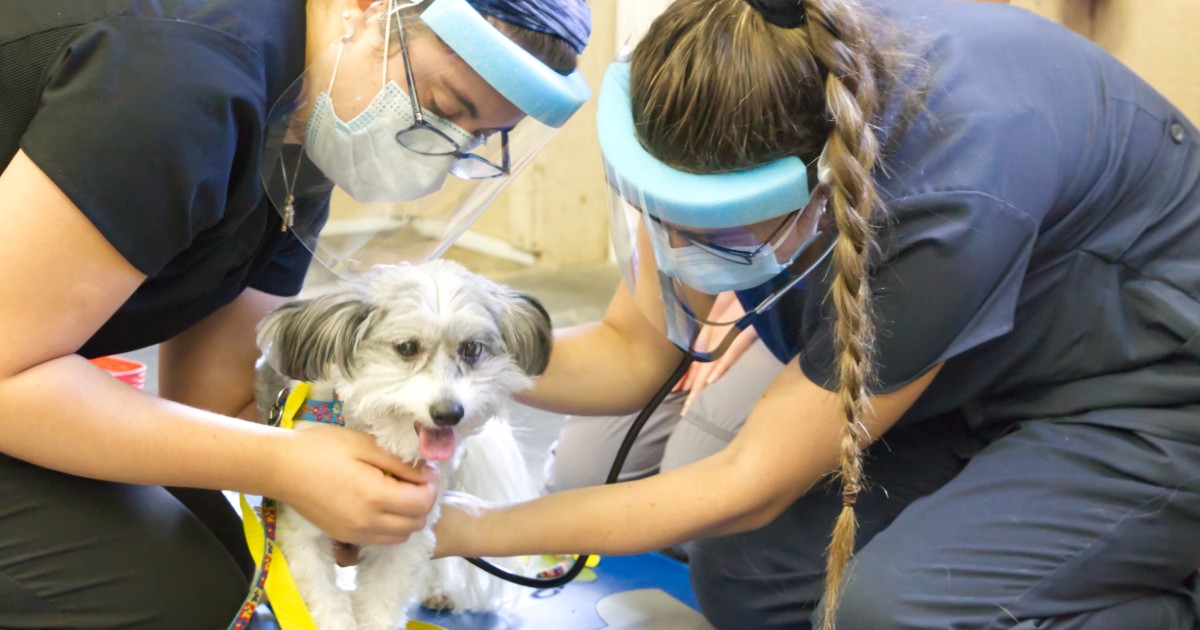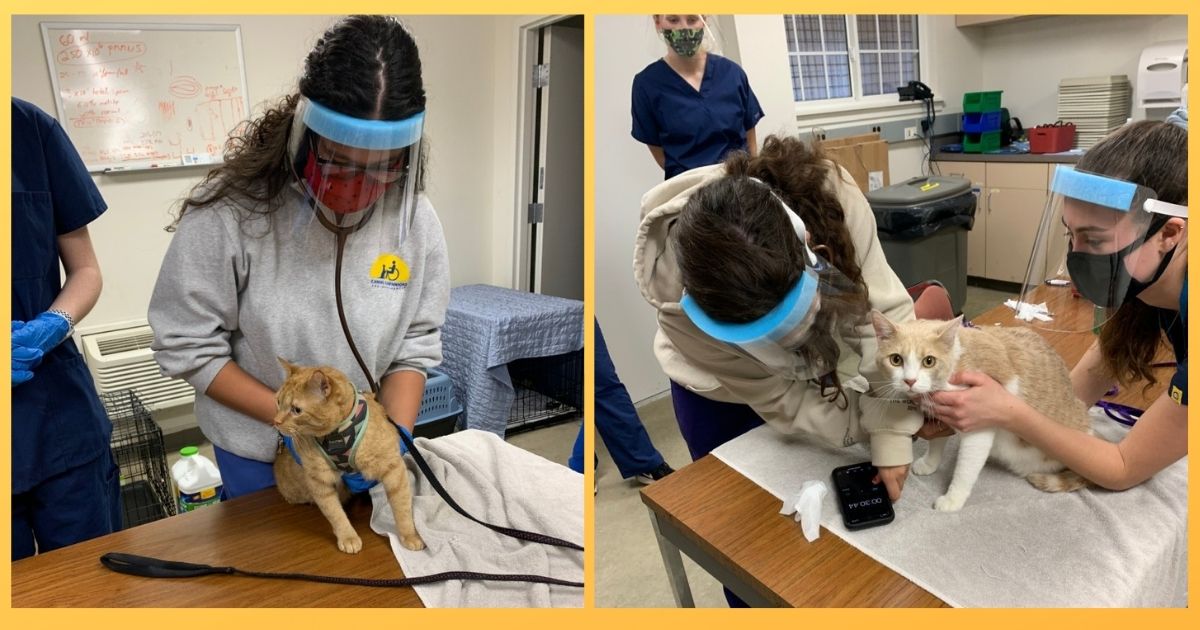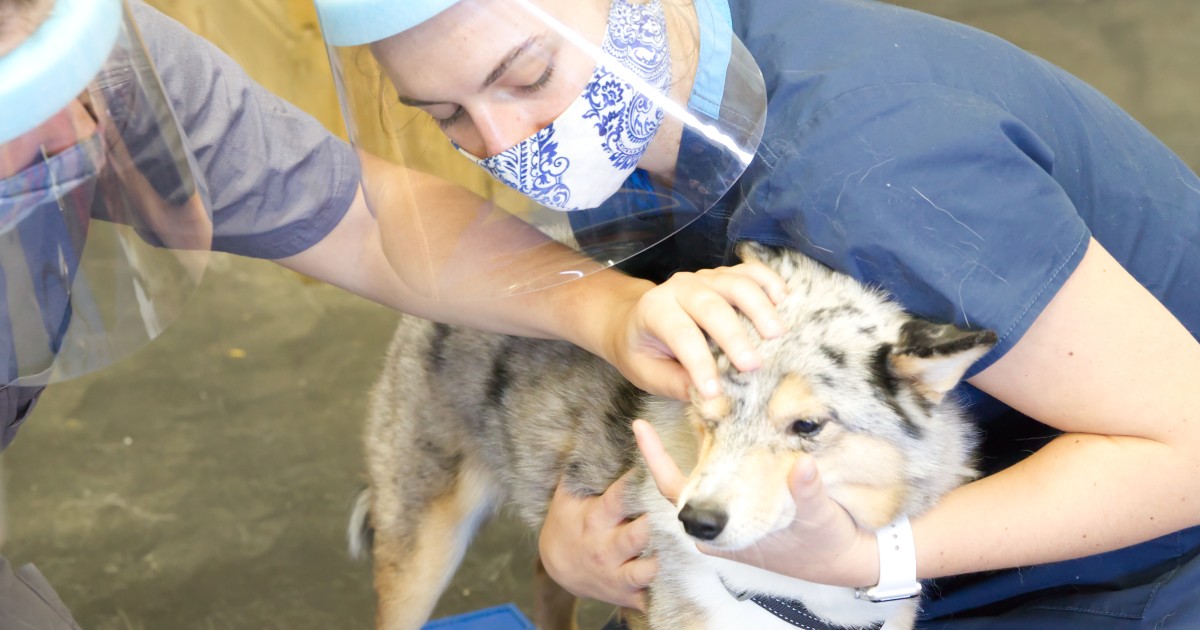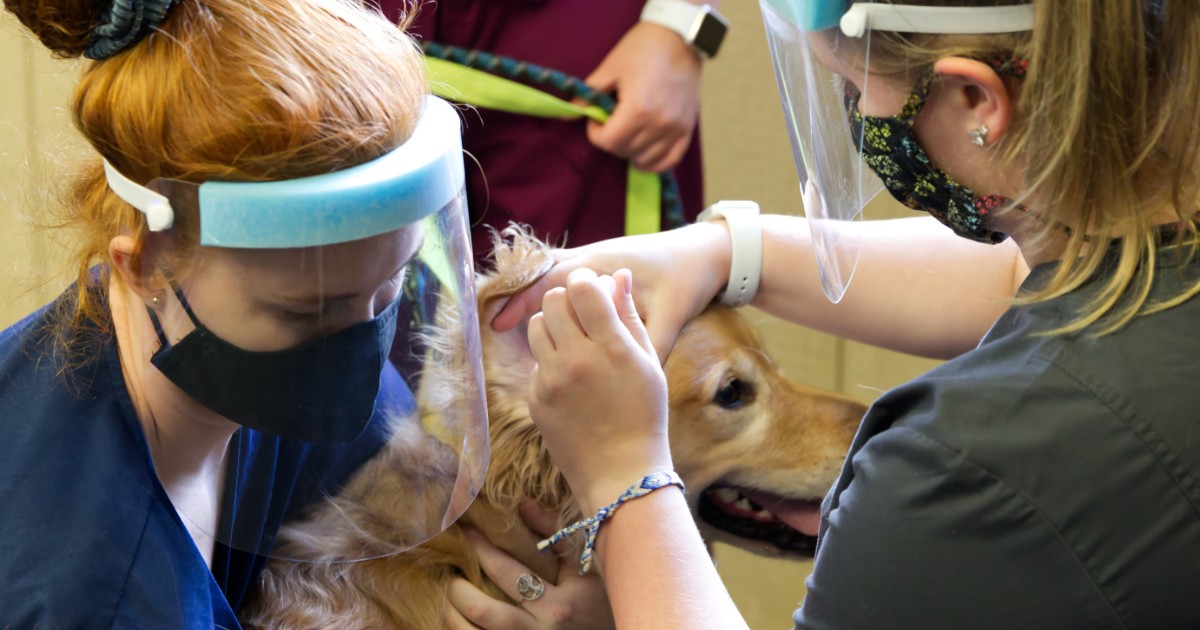
Category: Animal and Food Sciences

Vet skills
October 30, 2020 Written by Dante LaPenta | Photos by Monica Moriak and Stephanie DeMarco
Alumna Stephanie DeMarco cultivates clinical veterinary experience for UD students
As a small animal clinician for nearly two decades in the Newark area, alumna and veterinarian Stephanie DeMarco has helped many University of Delaware students. As veterinary schools require up to 500 hours before applying, UD pre-veterinary medicine majors need clinical experience hours at veterinary practices like VCA Kirkwood Animal Hospital, where DeMarco serves as an associate veterinarian.
“They want to learn and experience this field they hope to join one day. As a clinician and leader in the hospital, it is often difficult to take on these students,” explained the Class of 1997 alumna. “I always questioned what type of experience they are getting when they really can’t join in on what we do and, instead, just shadow. I decided to be part of the solution.”
DeMarco approached her alma mater with her idea of teaching, mentoring and developing students’ veterinary skills. The idea was a simple one. First, teach a course about the skills needed to work within a veterinary hospital. Second, place these students in partner hospitals to use the skills they’ve learned.
“The importance of having a structured program is that the students know what the hospital expects of them and the hospital knows what skills the students possess,” explained DeMarco, who earned her Doctor of Veterinary Medicine in 2001 from Oklahoma State University.
Alumna designs clinical experience for pre-veterinary medicine majors: youtube.com/watch?v=gFH_VNrLKdY
With mentoring from her former instructors Lesa Griffiths and Limin Kung, DeMarco turned the idea into a two-credit course for Department of Animal and Food Sciences students. This fall’s Clinical Pre-Veterinary Experience I is followed by winter externships in veterinary hospitals across the country. Finally, in the spring semester, the experience concludes with an advanced course, Clinical Pre-Veterinary Experience II, and another for-credit externship in the summer.
“It is really wonderful to engage one of our own veterinary alumni in mentoring our undergraduates in such an important, hands-on course,” said Griffiths. “It makes our pre-veterinary students more competitive for positions working in veterinary practices and for admission to veterinary schools.”
The fall course covers behavior, restraint, obtaining histories, vaccines, basic pharmacology, phlebotomy, application of oral/otic/ophthalmic medication. Students perform basic in-house testing including ear cytologies, urinalysis, analyzers and fluid therapy among others. In the spring course, instructors teach IV catheters, anesthesia, surgery and more advanced skills.
Through labs, instructors utilize voluntary live animals, models, preserved specimens and other means to bring about the most real-life experiences for these students.



